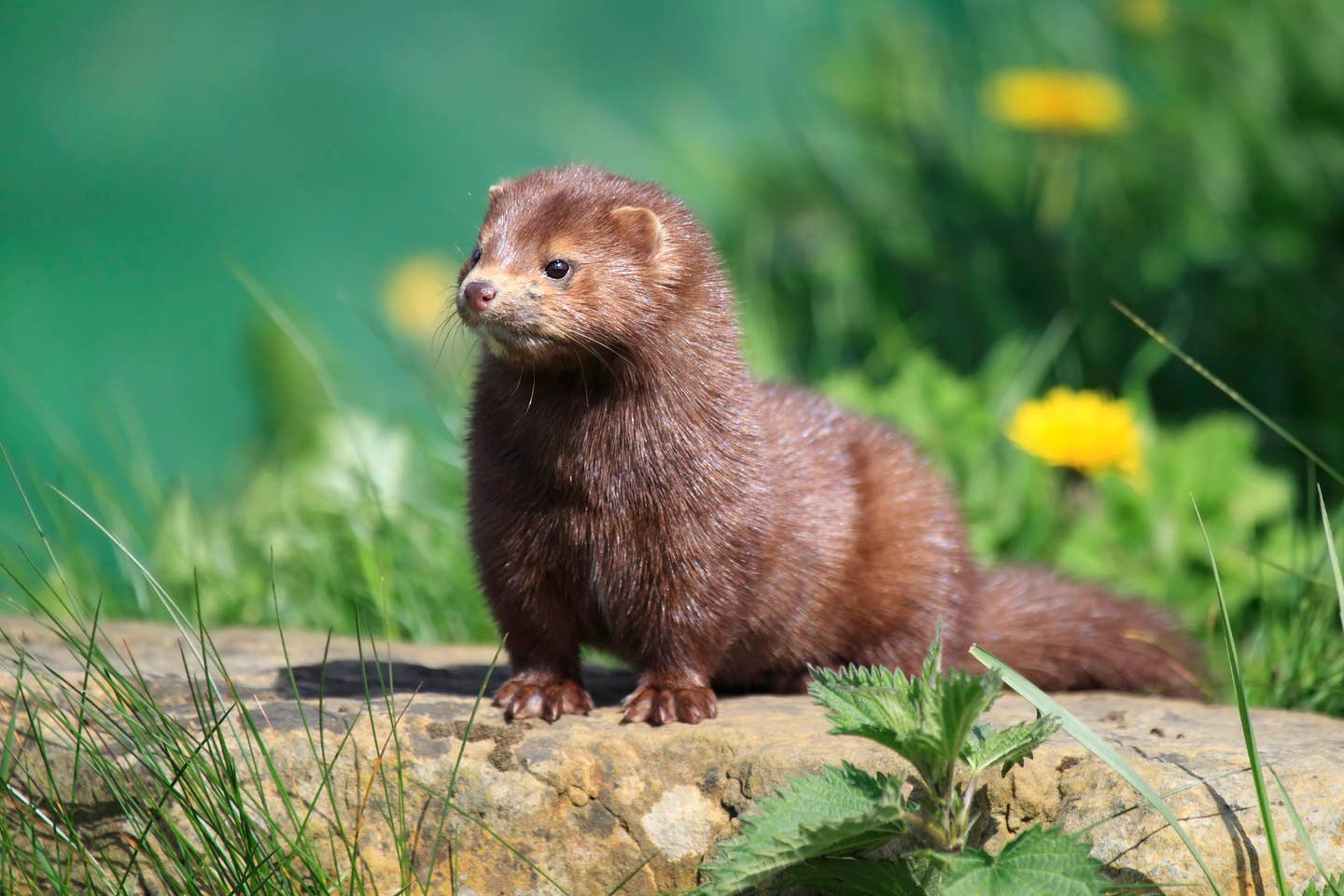
Millions of Minks to be Killed, as Officials Say They Pose COVID Risk to Humans
Denmark Prime Minister Mette Frederiksen has announced that the mink population on Danish farms needs to be "culled" or euthanized because the animals have tested positive for COVID-19 and the disease can mutate and then spread from minks to humans. This comes on the heels of the country announcing that mink farms will close ahead of schedule in light of the COVID-19 outbreak at farms. So far, 207 of the 1,139 mink farms in Denmark have been infected with COVID-19.
“Denmark is one of the largest fur producers on the planet, so a total shutdown of all Danish mink fur farms amidst spiraling COVID-19 infections is a significant development. Although not a ban on fur farming, this move signals the end of suffering for millions of animals confined to small wire cages on Danish fur farms solely for the purposes of a trivial fur fashion that no-one needs," said Dr. Joanna Swabe, Senior Director of Public Affairs for the Humane Society International Europe.
Denmark Killing Minks Over COVID-19 Fears
"We commend the Danish Prime Minister on her decision to take such an essential and science-led step to protect Danish citizens from the deadly coronavirus and ensure that the effectiveness of any vaccine is not compromised by mutations in the SARS-CoV-2 virus from its mink hosts," Swabe continued, adding: "With COVID-19 having already been detected on 207 of the 1,139 fur farms in Denmark and over 1.2 million mink having already been culled as a result, the risk of keeping these virus reservoirs operating is far too great."
"A decline in the public demand for fur fashion has led to a significant drop in pelt prices and stockpiles of fur skins going unsold at auctions. Although the death of millions of mink – whether culled for COVID-19 or killed for fur – is an animal welfare tragedy, fur farmers will now have a clear opportunity to pivot away from this cruel and dying industry and choose a more humane and sustainable livelihood instead. HSI urges the Danish government to assist fur farmers to transition to other activities. There has never been a more compelling time for Denmark to shut down this sick industry for good.”
Minks were first found to be infected with the COVID-19 coronavirus in April of 2020, and the government called for a closing of all farms by March 2021. Over a million minks have already been killed during the pandemic, due to fear about possible mutations the animals could cause in the virus.
Animals and the Transmission of COVID-19
There are many concerns from scientists about the potential vulnerability animals have to COVID-19, how the virus could affect them, and possible dangerous mutations that could be caused. The biggest fear is that the virus could mutate in animals and become more transmissible or more dangerous to humans. So far, minks are the only animals known to have passed the coronavirus to humans since the outbreak of the virus.
Although the mutated coronavirus transferred from minks to humans does not seem to be more transmissible or cause more severe illness in humans. There is concern from the Danish health authorities that the effectiveness of vaccines in development might be diminished by this variant. They have taken extreme measures to stop this spread but sadly that includes killing millions of minks. This has sparked concern from many countries around the world, with the UK even banning non-citizen travelers from Denmark. The World Health Organization and scientists outside of Denmark have stated that they have not seen evidence that this variant will have any impact on vaccines.
Pets and COVID-19 transmission does not appear to be a problem
When it comes to pets, a very small number of animals including cats and dogs have been infected with COVID-19, but so far there have been no known cases of people who were infected by exposure to their pets.
According to the CDC: "At this time, there is no evidence that animals play a significant role in spreading the virus that causes COVID-19," and there is no reason to worry that your pet will be the cause of viral spread.
More From The Beet






